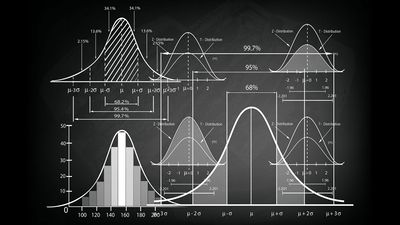(Created page with "'''Conclusion''' In conclusion, Fishers Information tells us how much information about an unknown parameter that we can get from a sample. This key concept plays a major rol...") |
|||
| (3 intermediate revisions by the same user not shown) | |||
| Line 1: | Line 1: | ||
| − | |||
| − | In conclusion, Fishers Information tells us how much information about an unknown parameter that we can get from a sample. This key concept plays a major role in many areas of statistics. | + | |
| + | <center> '''Conclusion'''</center> | ||
| + | <center> | ||
| + | [[File:Mathproj3.jpg|400px|thumbnail]] | ||
| + | </center> | ||
| + | |||
| + | |||
| + | In conclusion, Fishers Information tells us how much information about an unknown parameter that we can get from a sample. This key concept plays a major role in many areas of statistics, including Frequentist Statistics and Bayesian Statistics. There is still much to be learned about the field of statistics, so if you wish to learn more on this topic, check out the sources page. | ||
Latest revision as of 22:06, 6 December 2020
In conclusion, Fishers Information tells us how much information about an unknown parameter that we can get from a sample. This key concept plays a major role in many areas of statistics, including Frequentist Statistics and Bayesian Statistics. There is still much to be learned about the field of statistics, so if you wish to learn more on this topic, check out the sources page.


